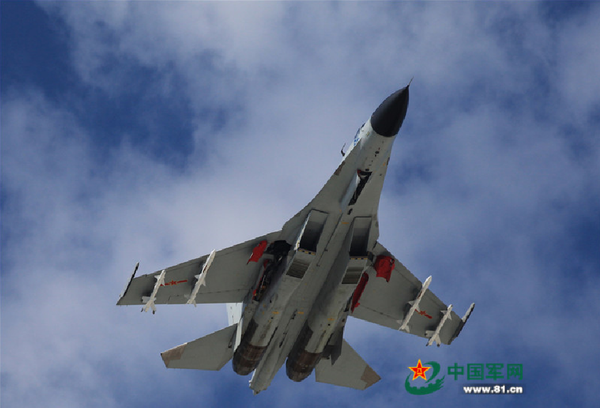America's decades-long naval hegemony in Southeast Asia is waning, while China is steadily gaining ground in the region.
Richard Javad Heydarian, an Assistant Professor in international affairs and political science at De La Salle University, argues that the world is facing the prospect of "full-fledged Chinese domination in the world's most important waterway, the South China Sea."
"America's decades-long naval hegemony in Asia, as we know it, may soon vanish into thin air as a resurgent China reclaims primacy in the region… In a span of two months, China has dramatically redrawn the operational landscape in adjacent waters," Heydarian writes in his analysis for The National Interest.
The scholar endorses Barack Obama's moves aimed at driving a wedge between Beijing and its Asian neighbors.
"A crucial component of the Obama administration's 'constrainment' strategy against China is the mobilization of regional diplomatic support on the South China Sea issue," Heydarian continues.
In addition, Washington is trying to reclaim its leadership in Southeast Asia by using the Association of Southeast Asian Nations (ASEAN) summits as a springboard.

The scholar underscores that in order to counterbalance the China-led Maritime Silk Road Initiative and the Asian Infrastructure Investment Bank (AIIB) the Obama administration launched "the US-ASEAN Connect Initiative to reinforce America's trade, investments and infrastructure footprint in Southeast Asia."
Furthermore, the White House continues to push ahead with its Trans-Pacific Partnership (TPP) agreement, actually aimed at leaving China out in the cold.
According to the Navy Times' Thursday report, the United States sent the USS John C. Stennis, two destroyers, two cruisers and the 7th Fleet to the South China Sea, under the pretext of protecting of freedom of navigation in the region.
However, America's assertive policies in Southeast Asia have prompted concerns among American politicians.
"What is the US doing in the South China Sea?" US politician Cynthia McKinney asked in her Op-Ed for RT.
According to McKinney, Washington is trying to throw a monkey-wrench into China's bold economic and infrastructural initiatives aimed at strengthening Asia's integration and boosting the region's development.

"The New Silk Road envisions a peaceful integration of the region fostering development of the Continent as a whole. A development that could be explained 'of Asia by Asians for Asians'," she stressed.
"Yet because of its military presence in the form of bases from West Asia to the archipelago countries in the East, the US military is present, blocking any Asian-led effort at integration and already enforcing US policies of containment, rollback, and 'leading from behind," McKinney, a former Democratic member of the US House of Representatives from Georgia and Green Party presidential candidate, highlighted.
China's Foreign Ministry has repeatedly stressed that it is committed to resolving all territorial disputes via peaceful negotiations.
"We are committed to resolving the disputes through dialogue and negotiation in a peaceful way," Foreign Minister Wang Yi said during a joint press conference with US State Secretary John Kerry in late February.
Wang also underscored that the dispute over the South China Sea was by no means an issue between China and the US and should not become one.
The Chinese official stressed that China has a right to maintain its territorial integrity and legitimate maritime interests.




